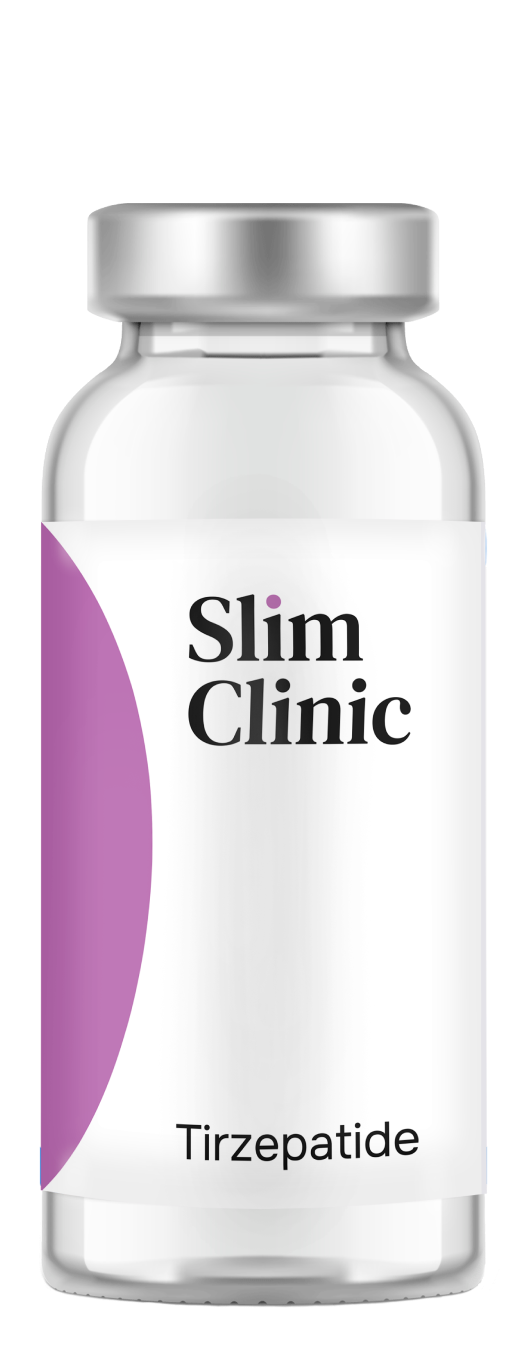




Before & After
Testimonials
I can’t say enough good things about [Slim Clinic], especially thanks to Omar! He listens to all concerns, answers questions, and provides clear guidance throughout the process. His professionalism and dedication to patient care are truly outstanding. I highly recommend Renew Vitality to anyone looking to optimize their health.
Choosing [Slim Clinic] for my weight loss treatment was the best decision I could’ve made. After being skeptical for a variety of reasons, the doctor eased my concerns and chose the best plan for me. Big shout out to Andy Triggs who was also with me every step of the way! His knowledge, care and concern for my progress was, in my opinion, instrumental to my success! 50 lbs lighter and feeling fabulous at almost 50!
By far the BEST experience I could have asked for! I’m so thankful I decided to work through [Slim Clinic] because that led me to Lyle! He ALWAYS goes above and beyond and gives top-tier service. I’ve never felt silly about asking the most personal questions. He’s extremely smart, efficient, and truly cares about the individual, which is something you rarely get in customer service nowadays. I couldn’t speak more highly of Lyle or this company!
We have answers.
Didn't find the answer to your question?
Feel free to ask us.
Both Wegovy and Saxenda are GLP-1 receptor agonists, but they differ in their dosing schedules and effectiveness. Wegovy is taken once weekly and has shown higher weight loss results compared to the daily dose of Saxenda.
Liraglutide, known as Saxenda, is a daily injectable medication that helps reduce body weight by increasing feelings of fullness and reducing hunger. Clinical trials have shown an average weight loss of 7.4% with Saxenda.
Tirzepatide, sold under the brand name Zepbound, is a dual GLP-1 and GIP receptor agonist. It mimics hormones involved in appetite regulation and glucose metabolism, leading to substantial weight loss when combined with a healthy diet and exercise.
Semaglutide, marketed as Wegovy, is a GLP-1 receptor agonist that helps regulate appetite and food intake. It is administered as a weekly injection and has shown significant weight loss results in clinical studies.
Eligibility for weight loss medications depends on factors such as your BMI, medical history, and the presence of weight-related health conditions. A consultation with a healthcare provider will determine the best treatment plan for you.
For optimal results, these medications should be used in conjunction with a healthy diet, regular physical activity, and behavioral changes. These lifestyle adjustments help sustain weight loss and improve overall health.
The duration of treatment varies based on individual goals and response to the medication. Some patients may need to continue the medication long-term to maintain weight loss and manage appetite.
Common side effects of GLP-1 receptor agonists (like Semaglutide and Liraglutide and Tirzepatide) include nausea, vomiting, diarrhea, and constipation. These side effects often decrease over time as your body adjusts to the medication.
Metformin may be safely combined with other weight loss medications such as GLP-1 receptor agonists. Your doctor will create a tailored plan that may include metformin based on your health needs to maximize the effectiveness of your weight loss regimen.
Metformin is primarily used to treat type 2 diabetes but has been found to aid in weight loss by improving insulin sensitivity and reducing appetite. It is often prescribed as part of a weight loss program, especially for individuals with insulin resistance.
Tirzepatide is a dual GLP-1 and GIP receptor agonist. It mimics hormones involved in appetite regulation and glucose metabolism, leading to substantial weight loss when combined with a healthy diet and exercise.
Semaglutide is a GLP-1 receptor agonist that may help regulate appetite and food intake. It is administered as a weekly injection and may assist with significant weight loss.
There are several reasons why some people have trouble losing weight while using Saxenda. In some cases, patients will need time for their bodies to adjust to the treatment before the medication can have a significant effect on their weight. Your eating patterns may also affect your weight loss results while using Saxenda. Patients who consume too many calories in their diet will find it more difficult to lose weight with Saxenda. Increased physical activity is also required for Saxenda to be effective, so if you’re not getting enough exercise while using the medication, you’ll be less likely to lose weight.
Technically, yes. But that will also depend on how your body responds to the medication. Because Saxenda is not addictive, many people are able to stop taking the medication without experiencing withdrawal or any serious issues. However, since Saxenda does affect your digestive system, it is recommended that you gradually reduce your dosage and taper off the medication so your body can adjust to the change. In some patients, the sudden discontinuation of Saxenda treatment may lead to feelings of nausea.
Saxenda can be taken anytime during the day, with or without food. However, once you choose a timeframe that works for you, it is recommended that you continue to administer your Saxenda injections at the same time every day for consistency to achieve the best results.
Patients who use Semaglutide for weight loss typically begin seeing results after the first four weeks of treatment.
Yes. Liraglutide works best when combined with regular exercise and a balanced diet.
Diabetes medications such as insulin and sulfonylureas, including glyburide, can interact with Liraglutide.
Yes, you can. In fact, studies show using Liraglutide and Metformin together as a form of weight loss treatment can actually improve weight loss and blood sugar regulation
Liraglutide is not an addictive medication, so it is possible to discontinue treatment without experiencing withdrawal. However, once you stop taking Liraglutide, you will regain any weight that you have lost. Since Liraglutide affects the digestive system, abruptly ceasing the medication may also lead to nausea or feelings of sickness. As a precaution, it’s important that you consult with your physician before discontinuing Liraglutide treatments.
Yes. Tirzepatide slows down your digestion and inhibits unnecessary cravings, which can help to significantly decrease your appetite.
Not quite. While medications such as Ozempic only utilize the GLP-1 receptor agonist to slow down gastric emptying and manage insulin release to treat weight-related conditions, Tirzepatide utilizes both GIP and GLP-1 receptors to enhance those effects further and optimizes your weight loss results.
That will depend on your physiology and your response to treatment. However, studies show that most patients on Tirzepatide achieved an average weight loss of 15% to 20% after 72 weeks of treatment.
Currently, Tirzepatide is not FDA-approved for weight loss. However, As of October 2022, the FDA has granted Tirzepatide a Fast Track Designation to be approved as a weight loss treatment for obesity in 2023.
Yes, Semaglutide is FDA approved as a safe and effective treatment for weight management and obesity.
Although both Saxenda (Liraglutide) and Semaglutide are GLP-1 agonists that mimic the glucagon-like peptide, Semaglutide is more effective at improving blood glucose levels and achieving weight loss than Saxenda. In terms of convenience, Semaglutide is also more tolerable as a once-a-week injection, whereas Saxenda injections require daily injections.
If you miss administering a dose of Semaglutide, you should take it as soon as you remember. If the time frame is too close to your next dose, you should skip the missed dose altogether and resume your normal dosing schedule to avoid double dosing.
Yes. By improving weight loss, Semaglutide can also help improve cardiovascular, physical, and mental health, which leads to improved overall health.
That will depend on your body type and the level of treatment. However, patients using semaglutide typically start noticing results after a few weeks of treatment.











